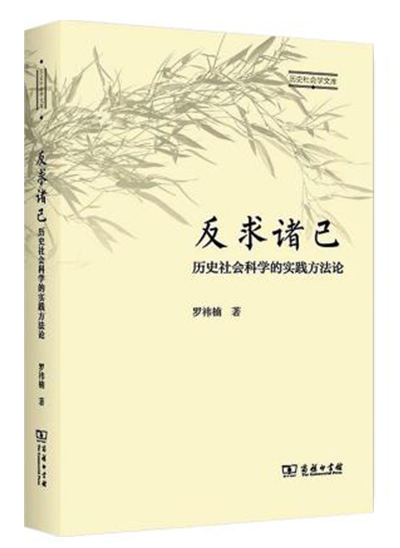Practical methodology of social sciences

Self-Introspection: The Practical Methodology of History and Social Sciences
Self-Introspection: The Practical Methodology of History and Social Sciences, by Luo Yi’nan, an assistant professor from the School of Government at Peking University, argues that the understanding of practice emerges from the researcher’s personal “sense of incongruity” that emerges from navigating between experience and theory. This compels researchers to “continuously and consciously reflect on their own process of understanding the world.” By examining their epistemological and methodological bases, researchers may finally achieve the goal of simultaneously re-establishing the subjectivity of both themselves and their research objects.
Luo conducts a thorough review of such research traditions as empirical statistics, comparative historical analysis, critical realism, constructivism, grounded theory, and reflexive analysis, with the overarching goal of uncovering the deeper underlying premises or assumptions behind them. On this basis, the author argues that researchers are not just objective and neutral discoverers, but rather “practice subjects who continuously and consciously reflect on their own process of understanding and transforming the world.” Similarly, research objects are also actors who continually interpret reality based on their own experience in a dynamic practice.
From the perspective of translating concepts into empirical research in social sciences, the concept of “understanding practice” undoubtedly brings new possibilities for discussion. First, it offers a new way of viewing actors or practitioners, fostering fresh perspectives for observing political and social phenomena. He suggests a different understanding of analysis objects, arguing that “politics is not only about the scramble for ideas, interests, or power, but more about how to find one’s role and principles in a chaotic and complex world.” This approach offers a richer means of deconstructing and revealing the subjectivity of research objects. Second, the concept presents a new way to establish the relationship between researchers and research objects, emphasizing the actor’s own worldview, even placing it on equal footing with that of the researcher. This leads to a dual effect of reshaping the subjectivity of both the researcher and research object at the same time.
The concept of actor holds multi-layered meaning. Individuals interpret the meaning of their “roles” and those of others through social interaction, acting and expressing subjectivity based on their grasp of specific situations. This understanding is inspired by American theories of social interaction. However, the author does not engage in reflexive analysis of the theoretical context and its impact, but directly takes it as a new starting point for argumentation. While this approach reconstructs a more fluid and flexible middle-range schema, it also introduces potential tension. When attempting to understand actors, unless more substantial and detailed content is used to delineate specific research subjects, this view may risk degenerating into formal generalization in actual research.
Ji Yingying is a professor from the School of Sociology and Political Science at Shanghai University.
Edited by YANG LANLAN
